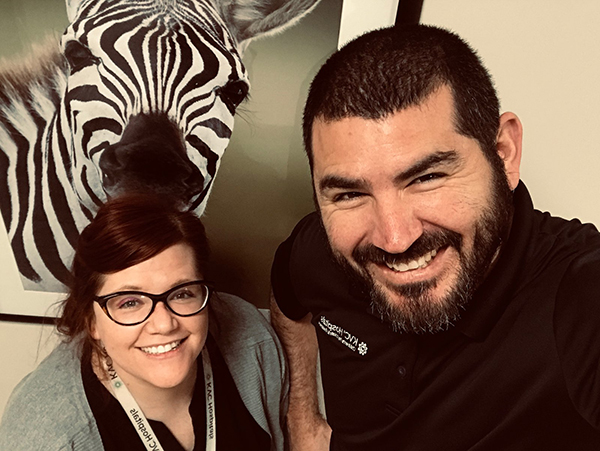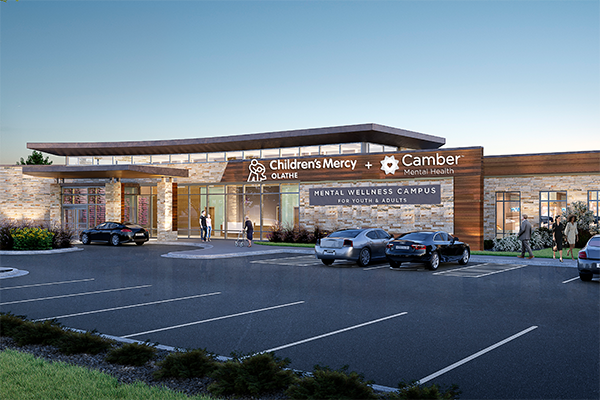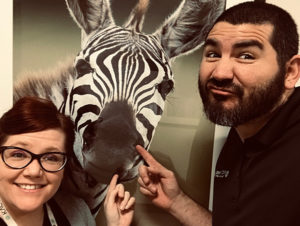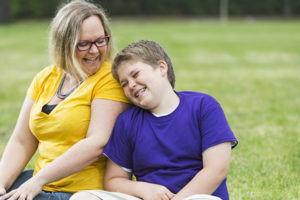The Story Behind His Behavior Will Break Your Heart: How Our Team Helped One Young Boy

This story was selected as a winner during our 2019 Summer Story Contest and was submitted by Brianna Anosike, Activities Coordinator at KVC Hospitals Wichita. Brianna tells the story of two staff members helping a child talk about emotions and what he’s feeling rather than getting angry and aggressive. The name of the client in this story has been changed to protect their privacy.
KVC Hospitals is a nonprofit organization serving children and teens in Kansas and Missouri who are struggling with depression, anxiety, suicidal thoughts, the impacts of trauma, and other behavioral and mental health challenges.
If you know a child struggling with their mental health, we’re here to help. Call us at (913) 890-7468 or fill out this form.
Upset 9-Year-Old Boy Becomes Angry, Struggles to Cope
Earlier this year, there was a 9-year-old boy named Thomas receiving treatment at KVC Hospitals Wichita because he was struggling with suicidal ideation and other behavioral health challenges. One day, he became very upset and physically aggressive. We had to separate him from the rest of the children while we worked to help him feel better.
Two of our staff members, Mr. Andrew, our Safety and Security Representative, and Ms. Jessica, one of our Nurses, instantly stepped in to help. They talked to Thomas with compassion and remained very calm. They asked him what might make him feel better, but he was so upset that nothing seemed to work. Andrew and Jessica were so patient, and no matter how upset he became or how much he pushed them away, they didn’t give up. They stayed persistent and kept trying to connect with him.
Helping Thomas Talk about Emotions
After an hour of giving him one-on-one attention, he finally opened up about what was really bothering him. He missed his mom and wanted to talk to her. The children and teens in our care are staying at our hospital while they receive services. The average length of stay for our acute inpatient treatment is five to seven days, and for a child, being away from loved ones for this long can bring up a lot of emotions. It can be difficult for them to understand what they’re feeling and why they’re feeling it. That’s something we teach them while they’re in our care—what emotions are and how to identify them and control them.
Once Thomas was able to express his feelings, calm down, and was no longer upset, our team helped him call his mom. The moment he started talking to her he started crying. This sweet, little 9-year-old boy just missed his mama as any child would. He wanted to hear her voice.
A Teaching Moment
When Thomas looks back on this memory and thinks of that experience, he will remember that he wasn’t punished, he didn’t have things taken from him and no one yelled or got angry with him. He will remember that there are ways to talk through emotions in a situation in order to regulate. We’re teaching youth that becoming angry, getting physical or acting out won’t make you feel better. It makes you feel worse. And we’re also showing them how to handle difficult life situations by talking out those feelings and calming your body.
The language we use is also so important when teaching clients how to talk about emotions. We’re never accusatory or negative. If a client is upset, we ask them what happened to them and we never ask what’s wrong with them. We ask what they need to feel supported or what we can do to help them. Thomas learned that when he feels upset, he can talk about emotions to explain what he needs. Giving a voice to his emotions will help him figure out what is really upsetting him and what he can do to feel supported and better.
About KVC Hospitals
KVC Hospitals is a nonprofit network of children’s psychiatric hospitals and residential treatment facilities in Kansas and Missouri. Each year, we serve thousands of youth ages 6 to 18 who are experiencing depression, anxiety, suicidal thoughts, the impacts of childhood trauma, and other behavioral and mental health needs. Our compassionate team uses neuroscience-based treatment resources regarding how stress and trauma impact brain development and turn this science into hands-on tools that guide successful treatment outcomes.








